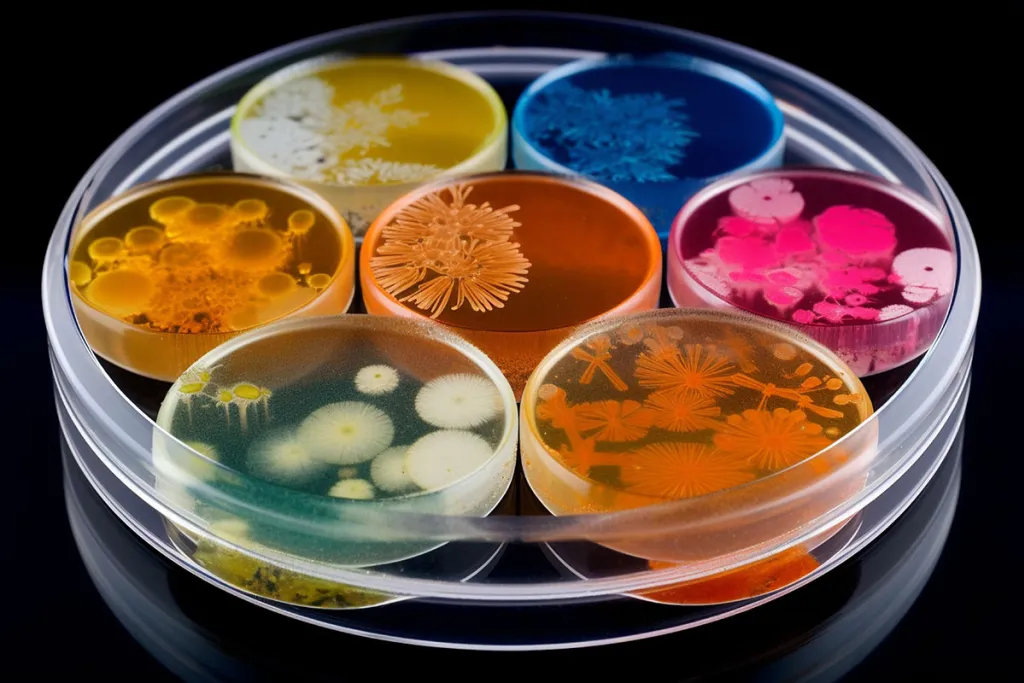Microorganisms dominate the planet in terms of total biomass, species diversity, and metabolic range and include pathogens and microbes that benefit higher organisms. Many are of enormous present and future economic value. Microorganisms have significant impacts on U.S. agriculture, natural resources, and food safety. NIFA supports research on microbial genomics to better understand how microorganisms live and how they can be manipulated for our benefit.
Microorganisms are extremely versatile in terms of the types of chemicals they consume and where they live. A microorganism's genome sequence identifies the order of bases in its entire genetic complement and provides a framework for understanding how the organism functions and lives. Microorganisms play important roles in various aspects of U.S. agriculture. Some microorganisms cause disease in plants or animals. Others help animals digest their food or help plants fight disease. Some microorganisms help us produce food products through fermentation. Others threaten the safety of our food.
Microorganisms are critical components of our natural resources. They are found in our soils, water, and air. Currently, we know very little about the vast majority of the earth's microbes. Genomics can help us understand what microorganisms do and how they do it, in ways that were not previously possible. Studies aimed at determining the function of microbial genes may include genetics, bioinformatics, and functional genomics. Proteomic studies are aimed at determining the functions of the protein products of genes.
Knowledge of gene and protein function can help us understand why an organism may be pathogenic or beneficial to a plant or animal, or how its properties might be exploited in metabolic engineering, development of sensitive and specific diagnostic tools, improved treatments and preventives, or more effective vaccines. Knowledge of the genomes of microorganisms is expected to be a driving force for research in the life sciences, including agriculture, forestry, and food safety.

